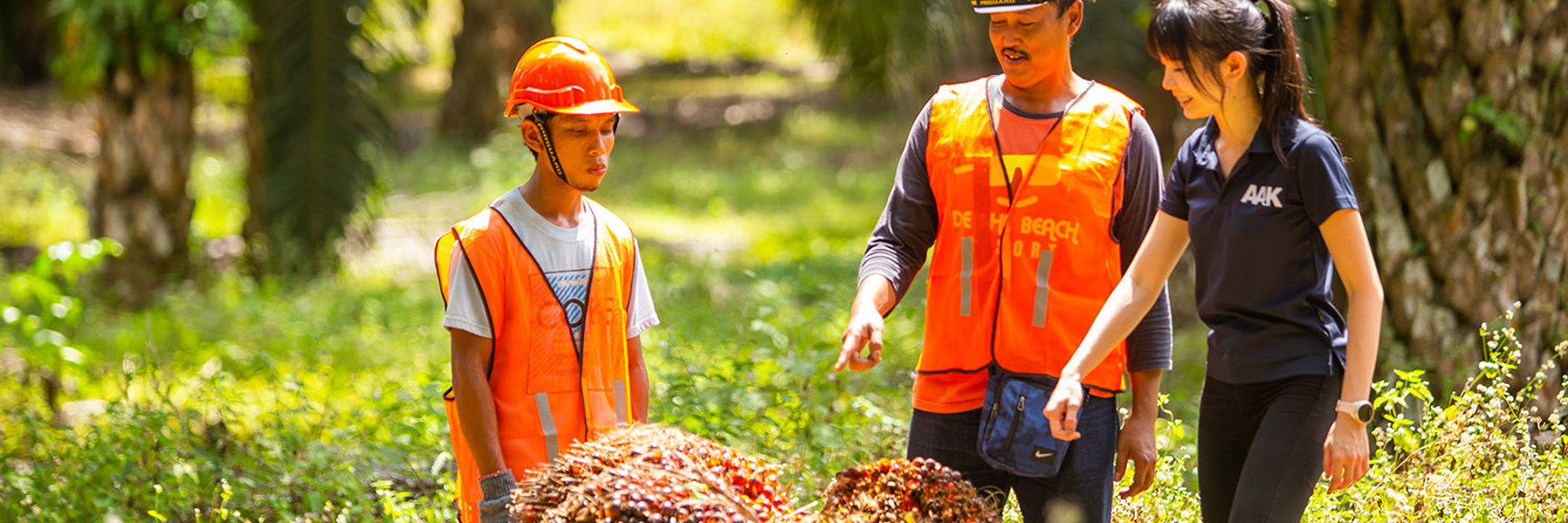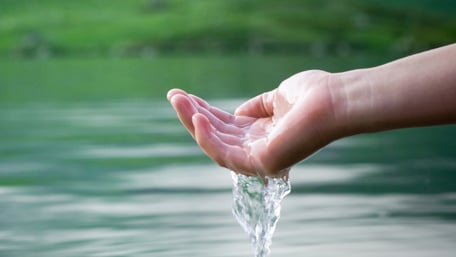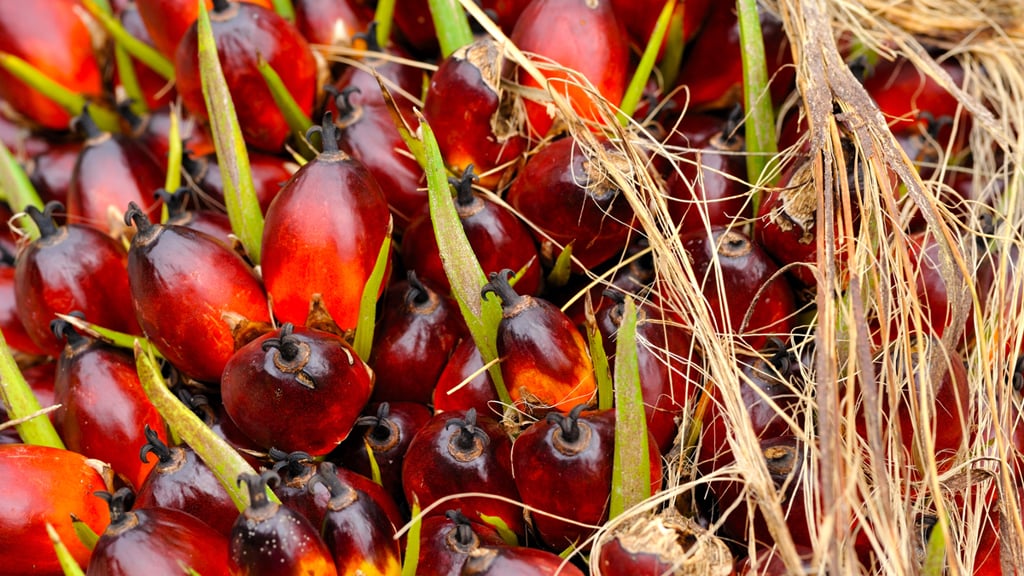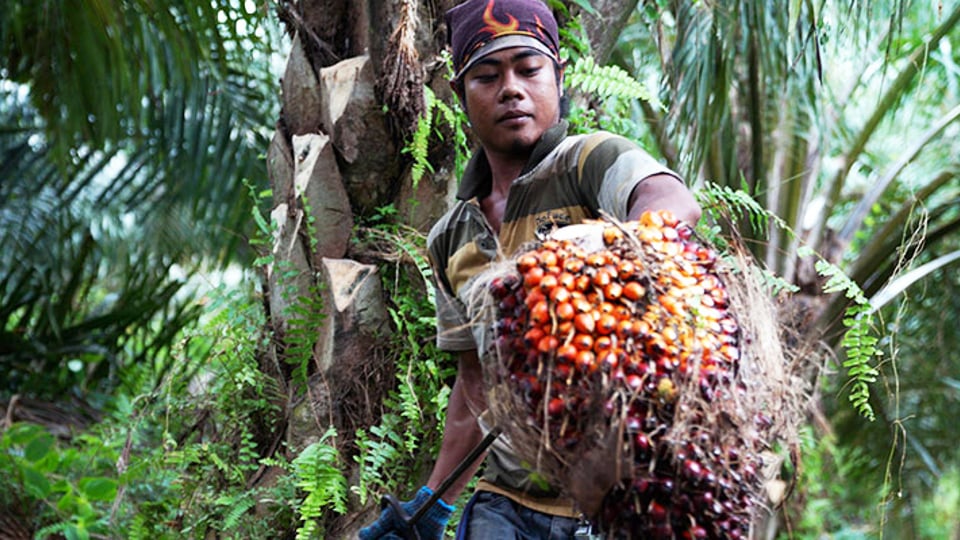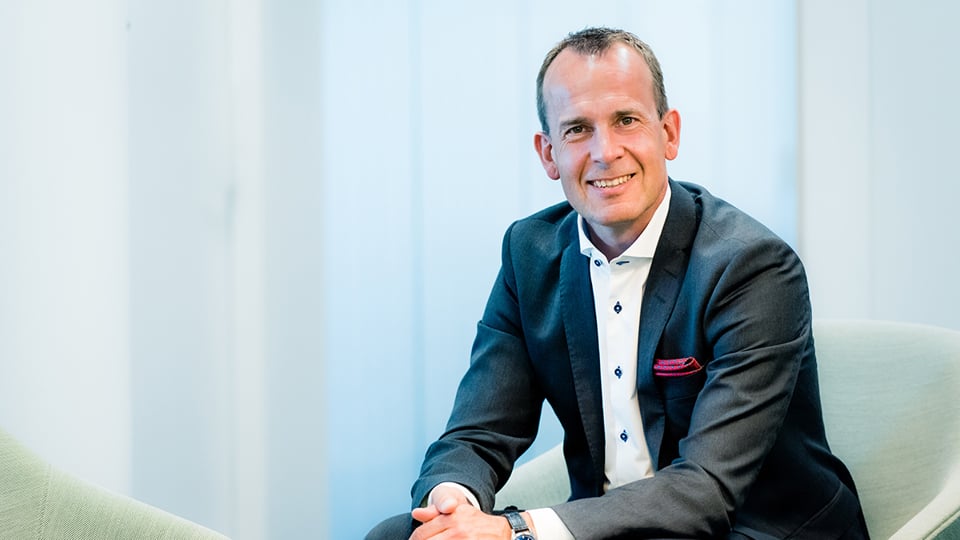AAK has made strong progress in increasing traceability to plantation (TTP) and verified deforestation-free (VDF) palm oil. To ensure we continue on the right track and to accelerate the progress towards 100 percent TTP and VDF by 2025, we work closely with multiple stakeholders in the palm oil supply chain for transformative change.
Through the efforts in promoting the consumption of sustainable palm oil, we see a stronger uptake of RSPO-certified palm material (39 percent) in 2021, driven by customer demand for a deforestation-free supply chain. Additionally, we are driving NDPE (no deforestation, no peat, and no exploitation) implementation progress within the non-RSPO-certified palm material. This requires us to work more upstream, for example with fresh fruit bunch dealers (FFB), with a particular focus on supply from the largest palm oil producers Malaysia and Indonesia.
Engagement with fresh fruit bunch dealers – the middlemen between smallholders and mills
In the palm oil supply chain, fresh fruit bunch dealers or middlemen are a critical piece of the puzzle to connect AAK with the smallholders. FFB dealers provide important services to independent smallholders by transporting FFB to mills. Some dealers even offer services such as harvesting of FFB, farm management, and cash advancement. While the industry is putting more resources into transforming mills and smallholders, the connection and support to dealers is often lagging and remains a gap. Therefore, AAK recognizes our responsibility to include the dealers for a fully transparent supply chain.
With the support from Proforest, AAK collaborates with multiple industry peers, including our key Tier 1 supplier refineries in Malaysia, namely Cargill, ISF, and Mewah. This also includes stakeholder consultation with local authorities such as the Malaysian Palm Oil Board and the Malaysia Palm Oil Certification Council.
The program commenced with the selection of prioritized mills in a high-risk region. Throughout the engagement with several dealers in Malaysia, NDPE policy commitments are communicated to dealers and smallholders. In turn, this engagement allows AAK to further understand the hesitancy around data disclosure by dealers and the barriers to mapping smallholders beyond dealers’ supply base. In many situations, dealers consider themselves competitors to the mills they supply, so data sharing is hindered by commercial sensitivity.
With a better understanding of these challenges, AAK has been able to tailor strategies with Tier 1 suppliers to provide effective support for NDPE implementation and thus increase transparency among dealers during the next phase of the project.
Piloting verified deforestation-free assessment in Indonesia and Malaysia
VDF is a central commitment that AAK has been working on since 2020. We have a commitment to source 100 percent VDF palm by 2025. A detailed description of the VDF methodology and regular progress updates are also available on our website. Accurate and transparent reporting of VDF requires sector-wide collaboration and involvement of origin suppliers. Palm oil supply chains involve millions of small producers, many of whom are not responsible for forest clearance. For that reason, AAK supports a risk calibrated approach to TTP, which maps plantations where there is a risk of deforestation at the village level. We also continue exploring new ways of conducting VDF assessments with more granular data as it becomes available.
In 2022, we began partnerships with one Indonesian and one Malaysian supplier at the refinery level. The aim is to test the application of different VDF approaches and methodologies using the existing TTP dataset from the two suppliers’ refineries. Both suppliers are supported by our sustainability partners, Proforest and Earthqualizer.
Greater transparency has been achieved in the first half of 2022 through the pilot projects. The traceability requirements of AAK are cascaded to the upstream suppliers and as a result, we managed to obtain TTP data from the Indonesian mills for VDF screening analysis and deforestation liability assessment. As for Malaysian mills, we adopt risk calibrated approach to achieve greater TTP. We believe that this approach will enable us to analyze the high deforestation risk area, map smallholders to the village unit, and prioritize this area for deforestation prevention. We are proud of the progress so far and will of course strive for further results and improvements that you will hear about in the next progress update.

